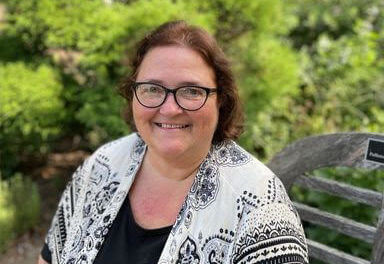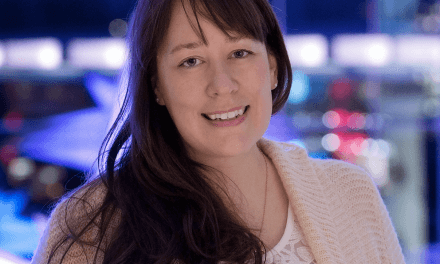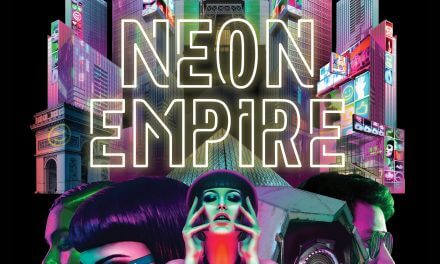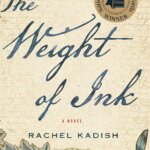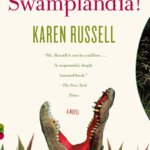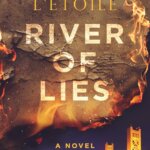Mike’s time-travel novel, Here and Now and Then, is being released by Mira today, January 29, 2019, so this is a celebratory interview. Mike Chen is a lifelong writer. He has contributed to major geek websites (The Mary Sue, The Portalist, Tor), covered the NHL for mainstream media outlets, and is super proud of his Star Trek: TNG fan fiction. A member of SFWA and Codex Writers, Mike lives in the Bay Area, where he can be found playing video games and watching Doctor Who with his wife, daughter, and rescue animals. Follow him on Twitter and Instagram: @mikechenwriter
SS: Mike, Writing is undoubtedly a lonely occupation. John Green (The Fault in Our Stars) says writing is a profession for introverts who want to tell you a story but don’t want to make eye contact while doing it. P. D. James (Cover Her Face) says it’s essential for writers to enjoy their own company. Do you see yourself along those lines? Are you a natural loner?
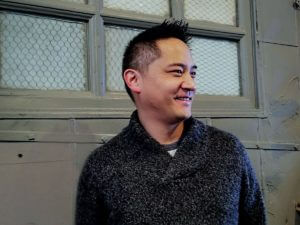
MC: I’m the type of person that really loves to go out and see my favorite people, but then after a bit of that I need to have some quiet alone time. And when I write, I need to have a hyper amount of focus, so I will have some evenings where, after my wife and daughter have gone to bed, it’ll just be me writing for a few hours. But I enjoy it and that process feels natural.
SS: Is your day job a distraction, or does it add another element to your writing?
MC: There are elements of my day job, which involve project management, that don’t do a lot for my creativity, but I find that the skills I’ve learned doing that have helped a lot on the business of being an author—staying on task, knowing where marketing efforts are in parallel, looking upstream and downstream at commitments and responsibilities. I run a freelance copywriting and technical writing business, and those core elements of writing—word choice, sentence structure, etc—actually help make my fiction better. Maybe not the actual story, but it helps me be a faster writer by allowing me to have a better sense of the technical side of things.
SS: How does your home and its environment influence your writing? To what extent?
MC:Well, I have a four-year-old daughter, so she influences my writing by not letting me write. I have to write when she’s asleep or when my wife shoulders the load for an evening.
SS: Could you say something about your relationship to your fictional characters? How autobiographical do you think your fiction is?
MC: I realized the other day that so much of my fiction stems from my relationship with my wife. Some of it is conscious—for example, there’s a lot of talk about cooking in Here and Now and Then, and I’m really not a foodie, but my wife is so, I just put in stuff I learned from her. A lot of it, though, is unconscious. I see a lot of the relationships—both romantic and platonic—in my fiction wind up unintentionally mirroring elements of our relationship. My second book, tentatively titled The Pause and scheduled for January 2020, has three main adult characters and they all carry pieces of my wife (with some of me thrown in), and none of that was intentional.
SS: I did like the cooking scenes in Here and Now and Then. In most sci-fi novels, the food is all synthesized, and the characters have no relationship with the ingredients or the joy of working with them.
Have any particular rejections inspired or motivated you?
MC:When I was querying, I would send out query letters methodically in small batches. But if I got a rejection from an agent on a full manuscript, I would get really pissed and send out revenge queries of large batches.
SS: What was your first recognition/success as an author?
MC: When I was at Worldcon in August 2018, there were a few authors who already knew who I was and wanted to say hi. That was weird, but lovely. At that same con, I brought an ARC for a giveaway, and to see someone take it as a prize was great—then he found me and asked me to sign it. That was a pretty big milestone.
SS: What are you working on at the moment?
MC: ,I am actually on a short break! My second book, a character-driven post-apocalyptic story called The Pause is basically done except for line edits. I have turned in my proposed book 3 to my agent following a revision, so I’m just waiting on him to approve so we can send that out. I’ve got a few anthology short stories I’m working on, but those are pretty solid drafts as well. So I am working on reading because I generally don’t read while I am writing or editing (it influences my writing voice).
SS: At what point did you come up with the title? Did your publisher change it?
Here and Now and Then has been the title I queried with. Getting to that point, though, was me playing with the concept of Now and Then. Since I was working with time travel and jumping through different eras, my early title was Now and Then and Now—it got the point across, but I knew it didn’t feel quite right. Changing that to Here and Now and Then just came about as a burst of inspiration a few months before I queried, and it stuck. I actually had one offering agent tell me that no matter what I did, no matter who I signed with or sold it to, do not change that title.
SS: Do you generally write in one genre? If so, what is it? And what can readers expect from one of your books?
MC: At some point I might branch out to go into a more space opera-esque story (I love space opera) or contemporary. But until then, I think all of my work is going to fall in the speculative/literary sci-fi space. The stories I want to tell are all character-based, but I love sci-fi more than anything, so merging those two genres has been natural for me.
SS: Regardless of genre, what are the elements that you think make a great novel? Do you consciously ensure all of these are in place?
MC: I am a huge proponent of the Save The Cat Beat Sheet structure, which really is a riff off the Hero’s Journey archetype. I definitely believe that the natural pacing of that pushes and pulls at the reader’s feelings in the best way possible. That’s not to say that books can’t be successful with a different mold, but the majority of great books use that structure as their foundation.
SS: If you stray from a chronological time-frame, did you write the book in the order in which it appears on the page, or did you write it in a chronological order and later rearrange
MC: There are some flashback sequences in the first act, which weren’t in the original draft on sub. During one of my revisions, I was asked to put in some 90s-era flashbacks to give a sense of history to Kin’s predicament. I started with a list of key moments from his life, and I wrote those scenes fairly standalone. Then I looked at the areas that I would cut/replace and found a way to tie them thematically into framing.
My next book The Pause features loads of flashbacks, and I used this technique while drafting that book. I find it helps to keep the writing focus on the flashback moment without worrying about the greater picture.
SS: What’s something memorable you have heard from your readers/fans? What’s been the best compliment?
MC: I’ve said several times publicly that one of the biggest inspirations for this story was an award-winning episode of Star Trek: The Next Generation called “The Inner Light.” There were a few Goodreads reviews that directly referenced that episode in their reviews and that made my day.
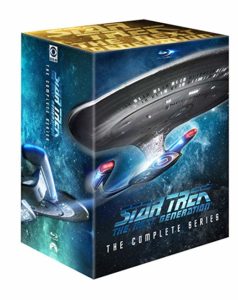
On the flipside, an editor from a media site was reading ARC while she was on vacation and she DM’d me with “I’m crying by the pool, you asshole, this is so fucking good.” I turned that into a blurb graphic, it was so perfect!
SS: Which famous person, living or dead would you like to meet and why?
MC: David Bowie, no question. He was brilliant in so many ways, and when you see conversations with him, incredibly self-deprecating and funny.
SS: How do you see the future of science fiction literature? Will science fiction maintain its independence or intertwine with other literary genres?
MC: There are two big shifts going on over the past decade or so. The first is the inclusion of a much more diverse writer set. By publishing writers with different backgrounds and identities, the talent pool opens up while also creating better representation in stories. That convergence of influences has brought new paths forward in sci-fi.
The second shift is the cultural acceptance of sci-fi into the mainstream in all media. Because of this, it’s possible for sci-fi to brush over into literary and other more critically recognized genres.
I think both of these shifts are gradual, still ongoing, and permanent — and the overall genre is much stronger for it.
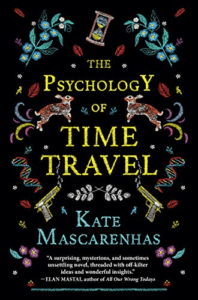
SS: On that note, I just finished a rather interesting time-travel novel, The Psychology of Time Travel by Kate Mascarenhas. It’s a bit cluttered with too many characters, but the great thing is that all the inventors of a time-travel machine are female and diverse in sexuality and race to boot.
Of the technologies invented in your stories, what would you most like to see become reality, and which one would have the greatest positive effect on humanity?
MC: In my book, medical technology employs the use of regular injections called metabolizers, which control the body’s metabolic rate. I’d read this study on how aging and cell degradation is essentially based on metabolic rate, and if you could maintain the metabolic rate of a young person, your cell structures would maintain and thus your body stays status quo rather than the natural aging process. In my fictional technology, this allows people to live to about 200 years old, though there are “naturalists” who decline the use of metabolizers.
I think 200 years old is a very nice age to live to, especially if the state of your body’s maturity is essentially scaled out to that, so you hit middle age around 100 rather than 40. Think of how many books you could read and video games you could play!
LIGHTNING ROUND:
SS: Describe your books in three words: Sci-fi with feelings.
SS: I agree. I don’t think I’ve ever read a sci-fi book with such emotionality, though it’s very understated, it did get me all sniffly. Next, your favorite thing about your genre? Everything. Sci-fi is the best.
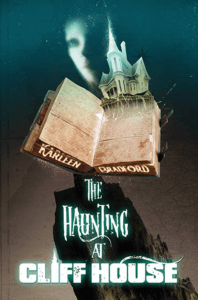
SS: A genre that you would love to write? Gothic horror. I read MG/YA horror just as much as sci-fi growing up. I’m very pleased to say that I am casual acquaintences with Karleen Bradford, author of Haunting at Cliff House. I sent her an ARC as a thank you, and much to my surprise she read it the day she got it and sent a lovely email about how she read it in one sitting, only breaking to eat lunch!
SS: When writing, are you a night owl or morning person? Whenever my kid allows.
SS: Pantser or Plotter? Mostly plotter, with some pantser to color in the blanks.
SS: The book you’re currently reading? Blackfish City by Sam J. Miller.
SS: Your favorite guilty pleasure? Tacos from Jack in the Box.
SS: Your number one book boyfriend or girlfriend? MG Martin from Meghan Scott Molin’s The Frame-Up.
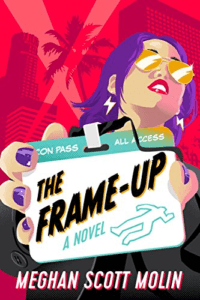
SS: What’s your favorite sci-fi movie? The Empire Strikes Back and Star Trek: First Contact.
********************
Here and Now and Then is available through https://www.mikechenbooks.com/book/here-and-now-and-then/ as well as Amazon | B&N

********************
An except from Here and Then and Now:
From the prologue. Full excerpts of from the prologue to chapter 4 are available at www.mikechenbooks.com/excerpt:
Two more days in 1996 until the end of his two-week mission span, two more days in 2142 before Mission Control scanned for a retrieval signal. Normally, he appreciated the TCB’s strict scheduling, a one-for-one policy that prevented field agents from appearing to age at an accelerated rate. Now that just meant two more days of asking what-ifs.
When the TCB failed to detect a signal from his beacon, common sense dictated they’d pick him up and bring him home. Even without the beacon’s geopositioning, access to all of the digital records in human history made this easy.
That had to be it. They wouldn’t leave him here.
Would they?
His wound bound and cleaned, Kin sank his naked back against the bathroom wall. He slid down and let out a breath, an oppressive weight collapsing down on his chest.
A new option appeared in his mind, the only one left: stay calm, wait, and see.
An unknown future. The thought gripped every muscle in his body. Kin’s groan echoed off the thin, dirty walls of the motel bathroom, and though this room had harsh lighting, his eye caught something behind the toilet. Despite the burn in his side and stinging in his knees, Kin reached, gut cramping from the wound, and he slid the object into view while fighting off the slight tremble taking over his hand.
A penny.
A quiet laugh fought past the pain spidering throughout his battered body, past the fears he didn’t want to acknowledge. The most worthless piece of physical currency in 1996. Or a sign of something else.
He grasped the coin, his fingers curled into a fist, pressing so hard the edges dug into his skin. A calm came over him, his breath returning to normal and his heartbeat slowing to a regular rhythm. It had to be something, this one little sign of his past—or his future, depending on perspective.
Hope. Of course. What else would a penny be to him?
